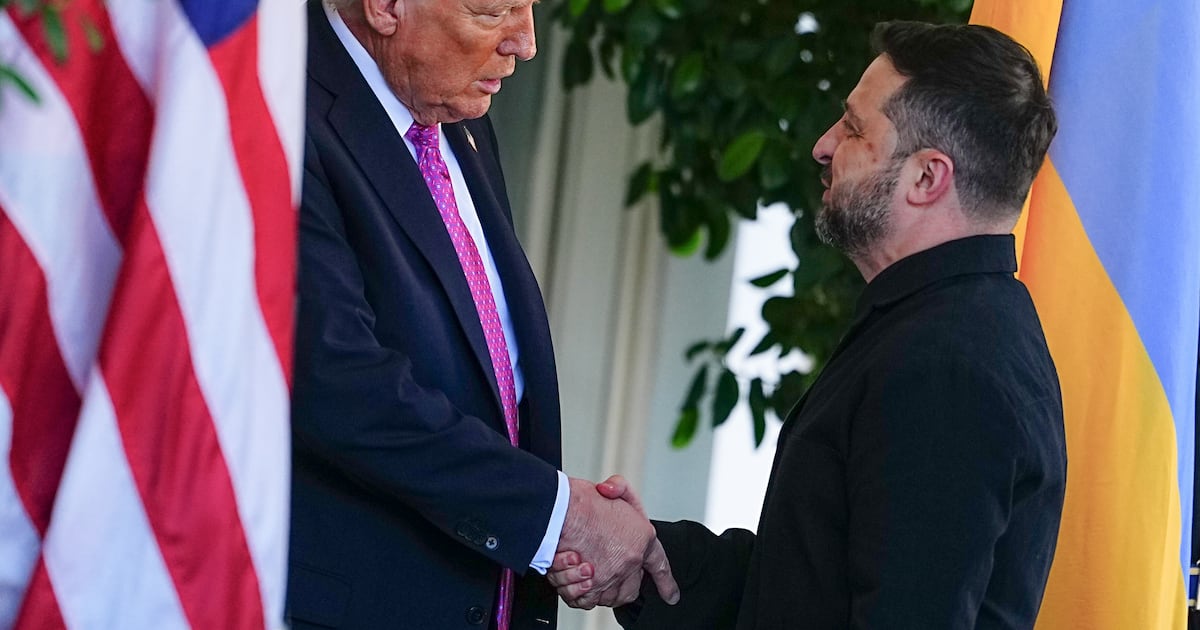Ukrainian president Volodymyr Zelenskiy’s latest meeting with US counterpart Donald Trump brought cold comfort to his people. He appeared to leave Washington without any reinforcements for his country’s strike force or air defences amid intensifying Russian attacks on its power grid as winter draws in.
The White House talks on Friday were heavily influenced by a call from the Kremlin a day earlier, when Russian president Vladimir Putin managed to convince Trump he wants peace, and that beefing up Ukraine’s missile arsenal would be a reckless “escalation” in Europe’s biggest war since 1945.
Zelenskiy put a brave face on Trump’s rejection of his request for Tomahawk long-range cruise missiles, telling US media, “it is good that [he] didn’t say no, but for today [he] didn’t say yes”.
Analysts always doubted Trump would ultimately allow Ukraine to acquire Tomahawks, given the cost of the missiles, the scarcity of the ground-based launchers that Kyiv’s forces would need, and his long-standing admiration for the autocratic Putin and his desire for a lucrative rapprochement with Russia.
On Friday, he all but ruled out the provision of Tomahawks to Ukraine, saying the US needed them and echoing Kremlin claims, “it could mean big escalation.”
“Hopefully, we’ll be able to get the war over with without thinking about Tomahawks,” said Trump. “I think we’re fairly close to that.”
Trump has repeatedly threatened to take tougher steps against Russia if it continued to reject the ceasefire he demanded in March and his calls for direct peace talks. No such action has followed, however, and he has repeatedly backed down after conversations with Putin.
It is unclear why Trump believes the Russian leader is now ready to end his war with pro-western Ukraine, but the prospect of another US-Russia summit in the coming weeks in Kremlin-friendly Hungary clearly enthuses him.
In courting Trump since the start of his second term in the White House in January, the Kremlin has emphasised how profitable it could be for the US and Russia to repair relations and, presumably, ensure sanctions are lifted on Moscow.
“One of the main talking points of the US president was that ending the conflict in Ukraine would open up colossal, as he stressed, prospects for developing economic co-operation between the United States and Russia,” said senior Kremlin aide Yuri Ushakov after Putin and Trump spoke.
Kyiv and European capitals see grave danger in Trump’s desire for a quick settlement, because he has shown himself ready to pile pressure on Ukraine while remaining unable or unwilling to make Russia compromise. So if one side must bend for the US leader to get his deal, he will expect it to be Kyiv.
Trump’s simplistic analysis on Friday of the war reinforced the impression that he has no stomach for long and complex talks.
He claimed it was merely “bad blood” between Putin and Zelenskiy that “is holding up … a settlement” and said their troops should “go home” and make the current front line the de facto border between Ukraine and Russian-controlled territory.
“Otherwise, it’s too complicated,” he added. “You’ll never be able to figure it out.”
It was music to Moscow’s ears: “Zelenskiy left the White House with a host of disappointments,” said Leonid Slutsky, head of the international affairs committee in Russia’s lower house of parliament. “Putin was clearly more persuasive in his arguments. Donald Trump effectively supported the Russian narrative.”
